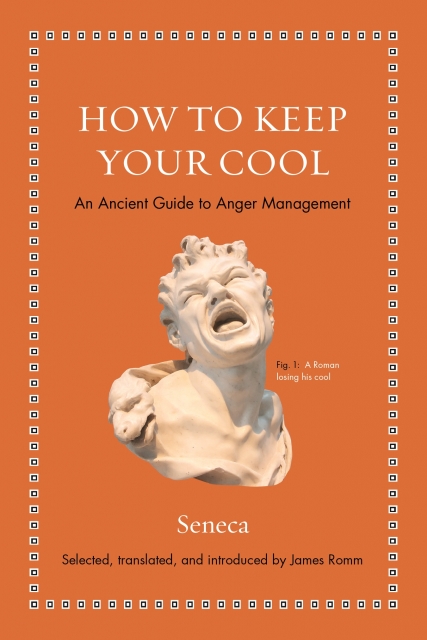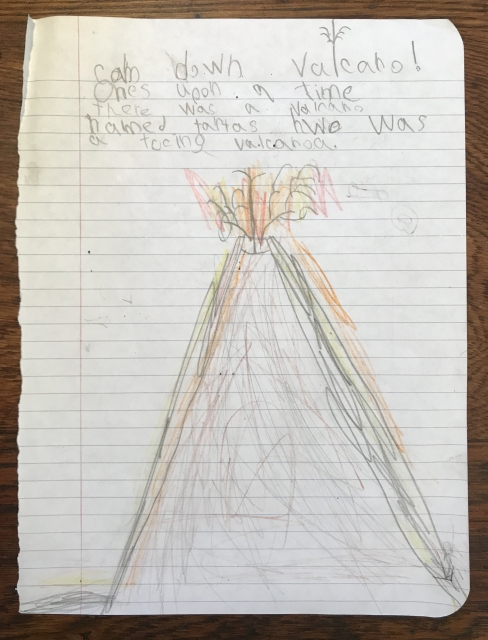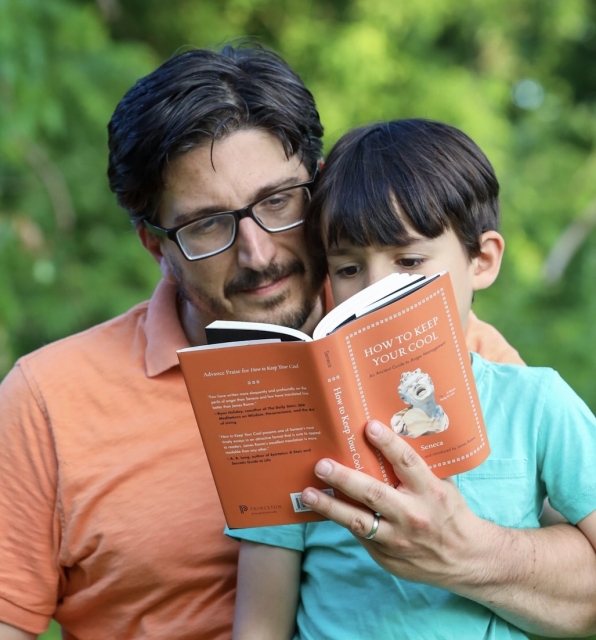Editors, amongst many other tasks, are daily faced with the challenge of persuading or pressuring authors to write or finish books. When COVID-19 pandemic stay-at-home orders went into effect and I found myself, in addition to being an editor, also suddenly a home-schooling teacher, little did I know that those skills might be transferable. As my seven-year-old’s first-grade teacher began sending us assignments, it became clear, much to my delight, that there would be a great deal of emphasis on writing. I had begun to realize this when earlier this year my son’s progress report indicated that his ability to “produce clear and coherent writing” appropriate to “genre” had shown improvement—a worthy goal undoubtedly for any author, and one that few have mastered, let alone someone in the first grade.

As I took up the role of writing instructor and editor to my son, I encountered a familiar problem that editors often confront with their authors: resistance. Although the endless stream of words, words, words, that fill our screens daily and the piles and shelves of books around us seem to attest otherwise, there is no denying that writing is hard, at least for some (says the present author as he submitted this post several days after the promised deadline). My skills as an editor who encourages, nay nags, people to write books would be put to the test over the course of the next several weeks as I endeavored to instill in my latest author, my son, a desire to write. No easy task lay before me, and resistance was encountered at every turn, but persist I had to and persist I must.
The first assignment was in an area where some great twentieth-century writers began their careers: copywriting. My son had to describe a favorite thing, whether a movie, a place, a book, or—bingo!—one of his toys, to get someone excited about it. My son could endlessly talk in minute detail about his various Hot Wheels sets. Ideas abounded for what he could write but getting them on the page was a challenge. We wrote down the ideas as we talked through them, but he still struggled to transform those fragments into the required three-sentence paragraphs. Distractions loomed, not least of which was the toy itself (not so unlike the devices we adults are expected to use for work while ignoring the bright lights that lay just a swipe and a click away). And whenever a sentence suggested itself based on my son’s verbal description, he always managed to opt for the least complicated and most Hemingway-esque laconic expression of it to commit to paper. This was either an instinctual act of wise self-editing or (more likely) a way to write less and still complete the assignment. A good lesson learned: writing is not just talking on paper.
This all probably sounds more charming than it often was in reality as I shuttled frantically between the kitchen table-cum-school desk and my own makeshift standing-desk assembled on top of our liquor cabinet. (Coincidence? Let’s just say I was prepared for five o’clock.)

The divided consciousness of my new daily life as editor and teacher did not exactly make me a paragon of patience. In fact, I am more than a bit embarrassed to say, quite the opposite was often the case. After setting my son on course, or so I thought, with a writing assignment, I would find him standing next to me approximately 1.25 seconds later with a contrived question, or a request for a snack, or I’d notice him on the floor doing anything but writing. The distraction goblins were hard at work. They know writing is hard, and this was their chance to shine. And even with years of experience in an industry where a contractual delivery date is more “penciled in” than “carved in stone,” I nonetheless found myself losing my cool—despite having published a book on doing the opposite—when my deadlines for my son the author were not met. Remember, Rob, you know this. Writing is hard. But still I was flummoxed by his resistance.

The next writing assignment hit home in two ways. Tasked with writing a fairy tale or myth and despite having read many such books, my son struggled to come up with characters for his own book. After a good deal more impatience on the part of his editor/teacher, he hit upon two. He would write a story about an “angry volcano” always erupting until a “nice cloud” persuades him to calm down. Ouch. Write what you know, eh? Had he learned the meaning of “thinly veiled” already? Well, with a good deal more prodding and teeth-grinding “patience,” we managed to flesh out those characters into a short book, complete with pictures, that captured the full story of the mountain/volcano who keeps erupting and his wise cloud friend who calms his rattled nerves. My son’s writing had revealed something to me, and it was not an easy lesson to acknowledge. But I had a lesson for him in turn.

As we took a walk after he finished his story, I told him his book had changed my life—literally. I repeated this: Your story changed my life. It revealed to me that I didn’t want to be an erupting volcano and would strive to keep his tale in mind when the lava within was starting to become molten. Something YOU wrote changed my life, I emphasized. This seemed to surprise him a bit and a look of “Really? I did that?” appeared on his face. Yes, J.R., good books can do that. They can change lives and they can do that across genres—from fiction to non-, from myths to monographs. Writing is hard, but it is a worthwhile pursuit. Books can make us wiser (insert shameless plug here); they can make us better citizens; they can make us more empathetic; they can make us more knowledgeable about life, fate, and the universe; they can perhaps even make us better fathers. Books may change someone else’s life or your own, but that it can change someone’s is definitely a change you can believe in. And that in the end may be the best lure we editors have in our tackle boxes for getting people to write (and finish!) their books.
As I repeated to my son over the next few days—your book changed my life—he rolled his eyes at his embarrassingly overly proud papa and said “Yes! You keep saying that!” But here’s hoping that’s one message from this book publishing father that resonates with a future reader or writer.
So, keep calm and keep on writing. Happy Father’s Day!
Rob Tempio is the Publisher for Philosophy, Political Theory, and the Ancient World at Princeton University Press.
